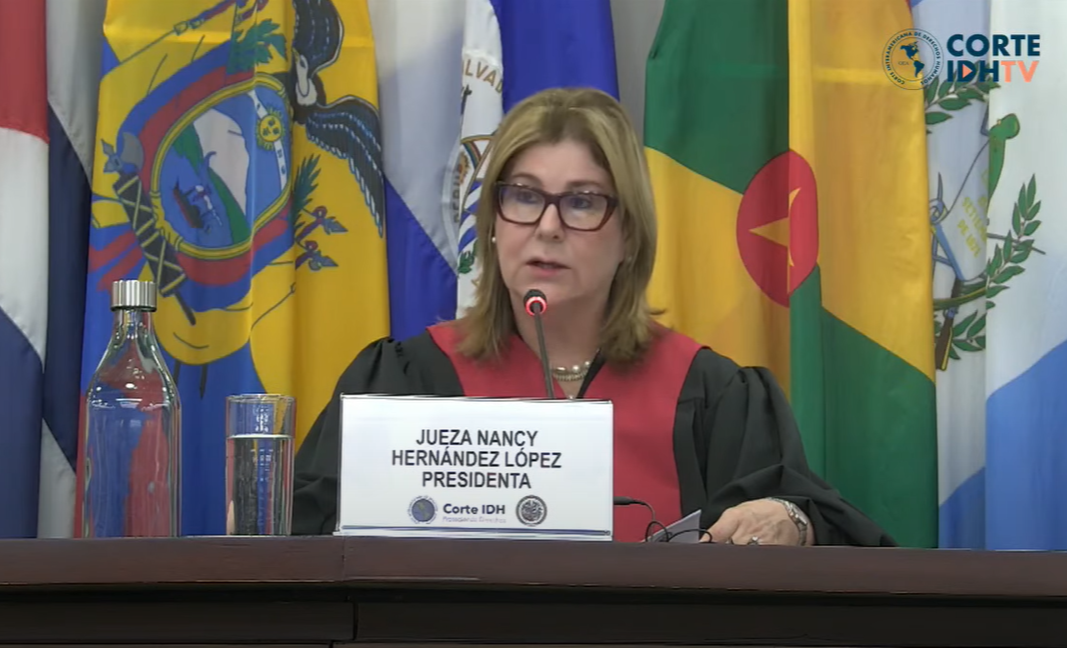In a groundbreaking opinion with global implications for workers and labor rights, the Inter-American Court of Human Rights on July 3 affirmed that states have a legal obligation to protect human rights in the face of the climate emergency, including the rights of working people.
The court’s advisory opinion, requested by the governments of Chile and Colombia, marks the first time an international tribunal has directly linked the climate crisis to core labor rights and protections. It reinforces that climate change is not only an environmental challenge but also a human and workers’ rights issue.
The Solidarity Center’s International Lawyers Assisting Workers (ILAW) Network played a central role in elevating the labor movement’s voice in the process. ILAW’s legal brief, cited by the Court, highlighted how climate change disproportionately harms workers—especially agricultural workers, migrants, and people in the informal economy—and outlined the need for just transition policies rooted in consultation with unions.
“The recognition that governments must work with trade unions to develop and implement just transition strategies is a major step forward in international law,” said Jeffrey Vogt, Solidarity Center Rule of Law Director and ILAW Network co-founder. “The Court’s opinion makes clear that labor rights, including freedom of association, are essential to any climate response.”
Just Transition Is Not Optional
The Court held that all member states of the Organization of American States (OAS) are obligated to adopt strong measures that reduce climate risks and protect people from its harmful effects. Among its most significant findings:
- Workers and unions must be consulted in designing and implementing climate and labor transition policies.
- Governments have a duty to prevent and mitigate job-related health and safety risks from climate impacts, including heat exposure.
- States must proactively develop job creation strategies that promote sustainable development and protect livelihoods as industries evolve.
The Court cited ILAW’s argument that defending labor rights, including for the most vulnerable, is essential to achieving a truly just transition. This builds on longstanding international labor standards and aligns with International Labour Organization (ILO) guidelines.
According to ILO estimates, by 2030, productivity losses due to extreme heat could be equivalent to 80 million full-time jobs. Without stronger protections and planning, that number could soar even higher.
A Voice for Workers in Global Climate Law
The Inter-American Court received more than 260 amicus briefs from over 600 organizations and experts, but few focused squarely on the experience of working people. The ILAW Network’s submission ensured that the lived reality of workers—those most exposed to climate impacts—was at the center of the conversation.
ILAW also participated in the Court’s public hearings in Bridgetown, Barbados, where advocates emphasized how climate change is already disrupting jobs, threatening health, and exacerbating inequality for working people globally.
This ruling is expected to influence climate-related legal opinions and decisions around the world, including an anticipated opinion from the International Court of Justice. It sets a new standard for how governments must integrate labor rights and worker safety into their national climate strategies.
This ruling is also a clear reminder of how unions and worker organizations strengthen democracy. When workers have a voice—especially in legal and policy spaces where everyday people are often left out—they can help shape decisions that protect not only their own lives and jobs, but entire communities. It’s one more way labor movements play a vital role in making societies fairer, safer, and more accountable.
Learn More
Explore the ILAW Network’s recent report on climate justice and just transition laws to better understand the legal tools available to protect workers in the climate emergency.
Click here to learn more about our climate and worker rights programming.
The Solidarity Center and ILAW’s work on this case was generously funded by private donors.

